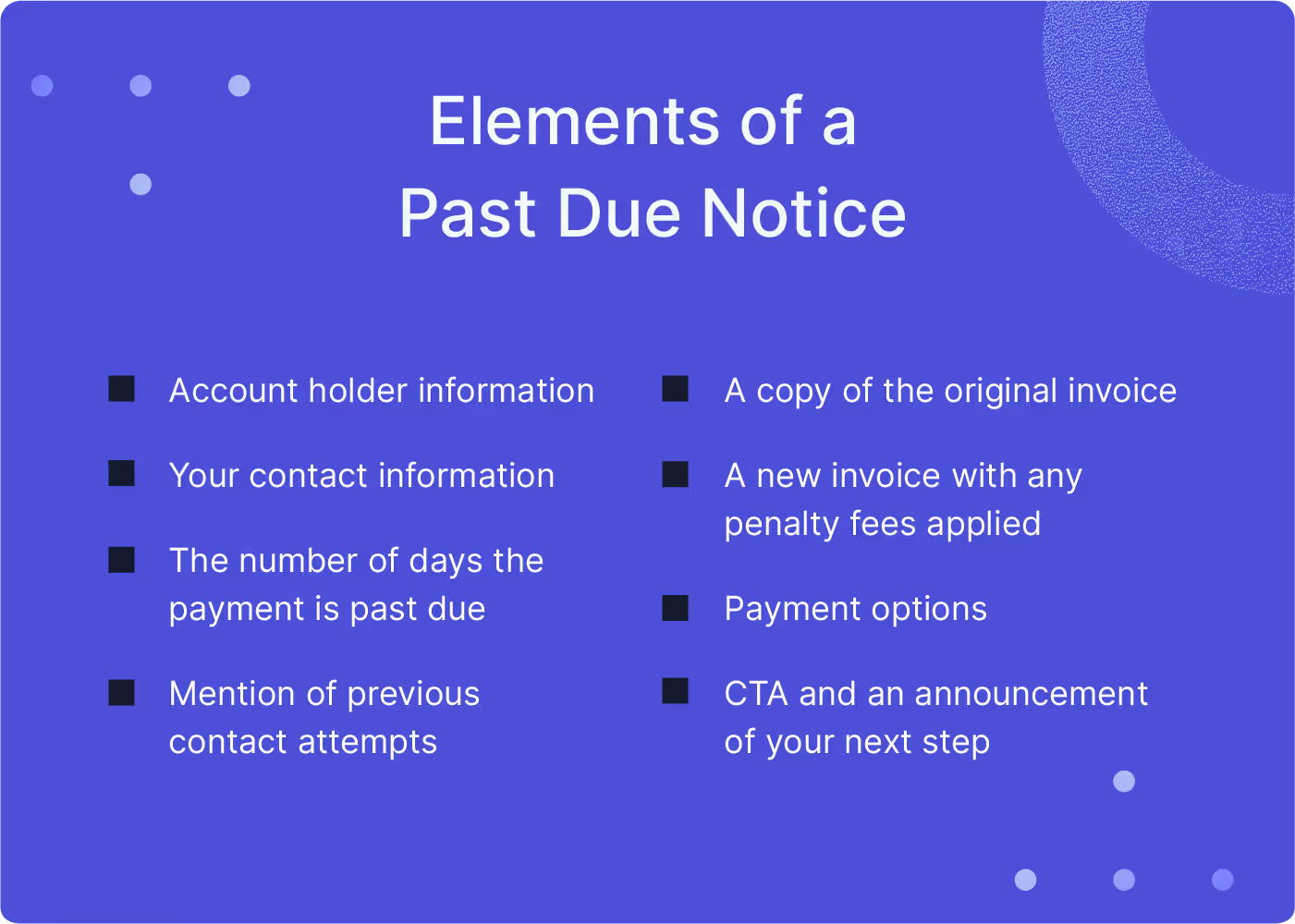How To Write Past Due Notices and Get Paid [5 Free Past Due Notice Templates]
What To Include in Past Due Notices

Past due notices should be tailored to the customer you are contacting, but there are still some common details that should be included in each one.
- Account holder information: Make sure your past due notice finds the right point of contact by including their information. State the person’s name, the company, and the company address.
- Your contact information: Ensure the customer has your most up-to-date contact information by including your company address, phone number, and email.
- The original invoice: Send a copy of the original invoice you’re notifying the customer about so they can compare it to their own records. Including the invoice number and amount due is also recommended in case the invoice is separated from the past due letter.
- The number of days past due: Citing when the invoice was due and how far past due it currently is helps emphasize the urgency of the matter.
- The past due invoice: If your payment terms dictate that a late payment fee will be added to overdue invoices, then you should write a past due invoice that includes the current charges.
- Previous contact attempts: State how many times you’ve reached out on this matter in case early attempts never reached them and to ensure they understand where the invoice currently sits in the collection process.
- Call to action (CTA): Identify what the client needs to do to resolve the overdue invoice and get their account in good standing.
- Payment options: Remind them of the different payment methods you accept to prevent unnecessary back and forth.
- Your next step: Let them know what will happen next if you do not receive payment, like sending the invoice to a debt collector, freezing their account, or adding late fees.
The precise information you provide in the past due notice will vary depending on the stage of the collection process you’re in, which we’ll explore further below.
Template for Upcoming Invoice Reminder

Sending your customer a notification of an upcoming payment is a courteous way to remind them of their commitment without coming off as passive-aggressive. The message can be short and sweet, bypassing many of the details necessary in a past due letter.
Hello [Client Name],
We hope all is well with you! This message is to remind you that invoice [Invoice Number] is due on [Due Date].
If you have any questions regarding the bill or how to complete the payment, don’t hesitate to reach out to our team.
Thank you for your business!
[Your Name]
[Your Contact Details]
Template for Past Due Notice for New Customers
When a new client misses a scheduled payment, it can be difficult to tell whether it’s an intentional act or simply a misunderstanding. For that reason, it’s a good practice to restate your payment terms in a way that’s not overly confrontational. That way you can ensure they’ve received accurate instructions and are less likely to get defensive.
Look to this example for how to word past due notices on a first attempt:
Hello [Customer Name],
According to our records, payment for invoice [Invoice Number] was due on [Due Date] which is now [Number of Days] past due. A copy of the original invoice is attached for easy reference.
As a reminder, payments are due [Number of Days] after billing.
To pay this invoice, please [Payment Instructions].
If you believe this notice was sent by mistake or if you have any questions, please reach out so that we can resolve this matter.
Thank you for your cooperation,
[Your Name]
[Your Contact Details]


